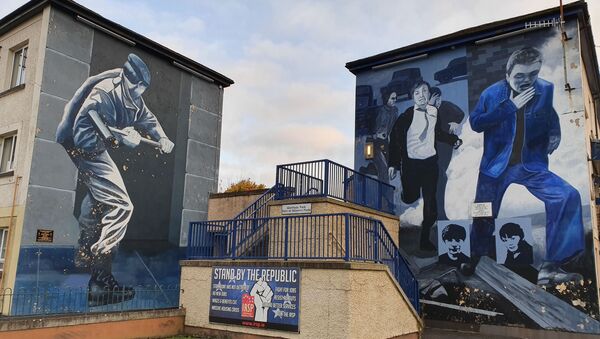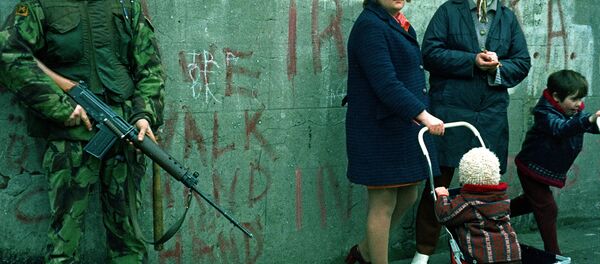A former British soldier facing prosecution over a fatal shooting during The Troubles has lost a bid to bring a High Court challenge over alleged discrimination against veterans.
Dennis Hutchings, 79, is to stand trial in Belfast on charges of attempted murder and attempted grievous bodily harm with intent over the death of John Pat Cunningham in Co Tyrone in 1974. Cunningham, a 27-year-old man with learning difficulties, was shot in the back as he ran away from an Army patrol near Benburb.
He’s now taken legal action against the UK government, claiming it’s failed to protect veterans from “ongoing discriminatory treatment by the criminal justice system” in Northern Ireland.
Hutchings also claimed proposed legislation means those who served in Northern Ireland during the Troubles won’t receive the same protection as those who served overseas.
— padraic (@padraic90) June 3, 2020
At a remote hearing conducted 3rd June, Hutchings’ barrister Austen Morgan argued former soldiers were unlawfully being treated differently to terrorists, and Hutchings, who’s on dialysis twice a week for renal failure, was one of six “elderly and often seriously ill” former soldiers who had been “lined up for prosecution”.
Morgan told the court that of over 3,500 people killed 1966 - 2006, roughly 60 percent were killed by republican paramilitaries, 30 percent by loyalist paramilitaries and 10 percent by soldiers or police, and “in an ideal situation of fairness and equality”, prosecutions for alleged historical war crimes should be proportionate - but while there have been prosecutions of republicans and loyalists for crimes committed before the signing of the Good Friday Agreement in 1998, “there are no comparable lists of pending terrorist prosecutions”.
As a result, he claimed “a former soldier is 54 times more likely to be prosecuted than a republican or loyalist terrorist”, and also argued Hutchings was treated differently to John Downey, a convicted IRA member suspected of carrying out the 1982 Hyde Park bombing, whose criminal trial collapsed in 2014. Morgan added Hutchings was issued a letter by an army lawyer in 1974 stating he would not be prosecuted, but his application to stay his prosecution on the basis of the missive ultimately rejected, and suggested Whitehall “made an error of law” when it agreed a deal with the Irish government to restore powersharing in Northern Ireland as it broke the Conservative Party’s manifesto pledge to “do more to give veterans the protection they deserve”.
— Matthew Jury (@finchbailey) June 3, 2020
Naina Patel, representing the government, dismissed in written submissions Hutchings’ contention Whitehall was repudiating “alleged promises in relation to Troubles-related prosecutions of British Army veterans”.
“Since prosecutorial decisions are taken independently of government and have been a devolved matter in Northern Ireland since 2010, the Secretary of State for Northern Ireland is not responsible for the decision to prosecute the claimant in 2015,” she added.
Dismissing Hutchings’ application for permission to bring a judicial review, Justice Lewis ruled his case was unarguable.
“This is a claim against the Secretary of State for Northern Ireland, (but) he is not the body responsible for dealing with prosecutions of people in Northern Ireland,” the judge explained.
The development potentially opens up scores more former British soldiers for prosecution. During The Troubles, over 3,600 people were killed - of which 52 percent were civilians, 32 percent were members of the British security forces and 16 percent were members of paramilitary groups - and thousands more injured in innumerable acts of violence carried out by paramilitaries and security forces.




